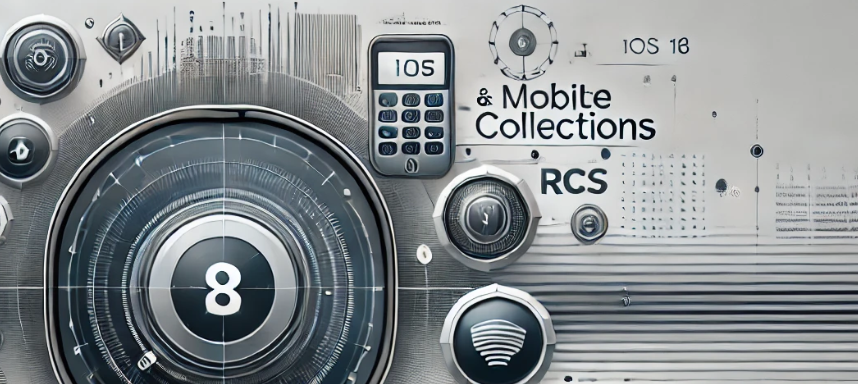With the release of iOS 18, Apple has introduced Rich Communication Services (RCS) messaging support, a long-anticipated shift that modernizes text messaging for iPhone users. While this update improves messaging interoperability with Android devices, it presents new challenges for mobile forensic and eDiscovery collections. Legal and forensic professionals must now consider the implications of RCS message collection, verification, and preservation.
Understanding the Differences: SMS, iMessage, and RCS
Before diving into the forensic challenges, it’s important to distinguish between these messaging protocols:
- SMS (Short Message Service): This traditional text messaging standard is limited to 160-character text messages, lacks encryption, and supports basic metadata.
- iMessage: Apple’s proprietary messaging service uses end-to-end encryption and synchronizes across Apple devices, storing messages in iCloud backups.
- RCS (Rich Communication Services): An enhanced messaging protocol supporting read receipts, typing indicators, higher-quality media sharing, and Wi-Fi-based messaging. Unlike SMS, RCS can function online and supports modern communication features like iMessage.
Challenges with RCS in Mobile Forensics
- Lack of Standardized Forensic Extraction Methods
Unlike SMS and iMessage, which have established forensic acquisition methods, RCS presents a challenge due to varying implementations by carriers and device manufacturers. The way messages are stored and retrieved may differ across devices, creating inconsistencies in forensic processes.
- Encryption & Data Retention Complexities
Like iMessage, RCS messages often use encryption between devices supporting end-to-end encryption (E2EE). This makes message extraction more difficult, particularly if the data is not stored in an accessible backup format. Unlike SMS, which can be retrieved from carrier records, RCS messages might not be available from service providers.
- iCloud Backup & Synchronization Challenges
Apple’s approach to iCloud backups could impact the accessibility of RCS messages. If RCS messages are synchronized across Apple devices, forensic examiners must determine whether these messages are included in iCloud backups or remain only on the local device.
- Metadata & Message Integrity Verification
Forensic professionals rely on metadata (timestamps, sender/receiver IDs) to establish message authenticity. RCS metadata structures differ from SMS and iMessage, requiring forensic tools to adapt to new timestamping formats, delivery reports, and read receipts.
How CrossCopy Enterprise Mobile Supports iOS 18 & RCS Collections
CrossCopy Enterprise Mobile (CCEM) from Pinpoint Labs addresses iOS 18 RCS and iMessage collection challenges with secure, targeted mobile collections that maintain defensibility. A key differentiator is that CCEM uploads data directly to the client’s servers, bypassing Pinpoint Labs’ environment or any intermediary platform. This ensures that data travels directly from the custodian’s device to its final destination, reducing exposure, protecting privacy, and minimizing the risk of data being viewed, spoiled, or intercepted.
The Future of Mobile Forensic Collections with RCS
As Apple and Google push for broader adoption of RCS, forensic investigators must adapt by developing new acquisition techniques. Here are some key considerations moving forward:
- Forensic tool vendors must update extraction methods to support RCS message parsing.
- Legal teams must understand RCS storage behaviors and how messages sync across devices.
- Organizations should implement policies for collecting RCS data in compliance with eDiscovery and regulatory requirements.
While RCS in iOS 18 marks a positive step for cross-platform messaging, it presents significant forensic and legal challenges that professionals must proactively address. With solutions like CrossCopy Enterprise Mobile, forensic investigators can confidently collect and preserve RCS and iMessage data while ensuring defensibility in their mobile forensic workflows.

